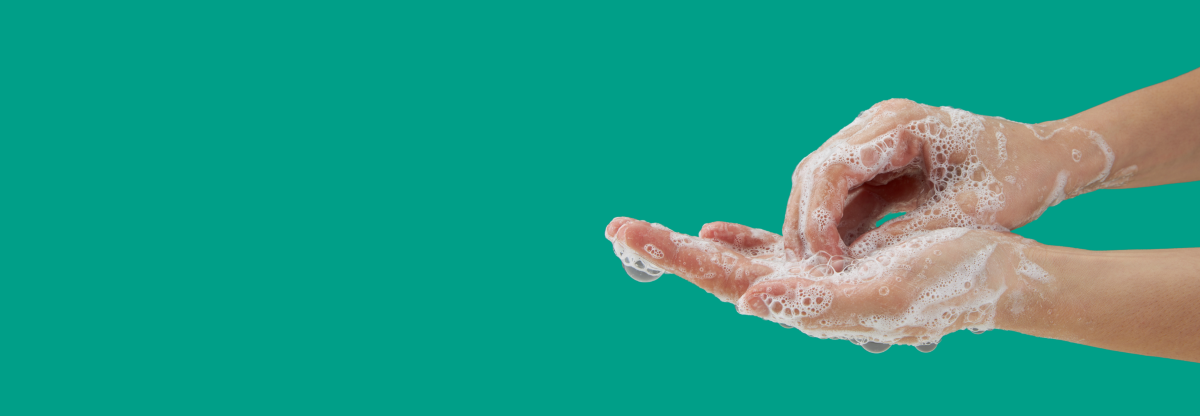Infection Control information for visitors
Infection Control information for visitors
- If you have suffered diarrhoea or vomiting, or have had a cough, cold or flu, please stay away from the hospital until you have been free of symptoms for 48 hours. If in doubt call the ward for advice
- Please cover up any open wounds or cuts
- Use soap and water to wash your hands and alcohol rub before and after visiting. Hand gel is only effective on clean hands
- We don't mind being asked if we have cleaned our hands properly.
- Help keep the hospital clean by not bringing in lots of belongings that can clutter the area around beds. Please take away things that are not required.
- Report any problems, such as litter or spillages to ward staff. Our ward managers and matrons are responsible for making sure wards are clean and hygienic. If you want to talk to the Matron responsible for the area you are being treated in or visiting, ask a member of staff.
- Please ask the nurse in charge of the ward abut bring in any food and drink.
- Having vaccinations and keeping these up to date, is one of the best ways to prevent infections.
Hand Hygiene
Hand Hygiene
The best way of preventing infection passing from one person to another is by cleansing our hands.
All opportunities to promote hand hygiene to staff, patients and visitors should be considered. The posters below provide information on hand washing and use of hand gels to ensure the correct method is used at the right time. Additional posters to support effective hand hygiene include promotion of 'Bare Below the Elbows' and are also available below.
Hand hygiene undertaken by healthcare staff must always be carried out in accordance with the '5 Moments of Hand Hygiene' guidance. Patients should not be afraid to ask healthcare staff if they have cleansed their hands prior to provision of care or treatment.
When to wash your hands
You should always wash your hands before:
- Preparing food
- Eating
- Caring for the sick
- Changing dressings
- Giving medicines
- Looking after babies or the elderly
- Starting work, especially if you are a food handler or health professional
- Putting in contact lenses
You should always wash your hands after:
- Handling raw foods, particularly meat, fish and poultry
- Going to the toilet
- Touching rubbish/waste bins
- Changing nappies
- Caring for the sick, especially those with gastro-intestinal disorders
- Coughing or sneezing, especially if you are sick
- Handling and stroking pets or farm animals
- Gardening, even if you wear gloves
- Cleaning cat litter boxes
Preventing the spread of Norovirus
To help prevent the spread of viral gastro-enteritis please take particular care with washing your hands by using warm water and soap. This is especially the case before preparing or eating food, after sneezing or coughing, after using the toilet and if you've had contact with anyone who has been symptomatic. Alcohol hand sanitizer dispensers, which are becoming more readily available around most public places, are an alternative if a hand wash basin isn't readily available. However, please remember that soap and warm water is much more effective.
Think of ways that children can be encouraged to wash their hands more thoroughly. An example of this is singing 'Happy Birthday to You' twice through, which takes roughly fifteen seconds and is the amount of time it takes to thoroughly cleanse hands. It is important to encourage this practice as schools are somewhere that infections such as diarrhoea and vomiting can be easily spread. Another way to minimise the spread of viruses is to ensure that children are kept away from school until they have been free from diarrhoea and/or vomiting for 48 hours, if the cause is thought to be infectious.
If you are unwell with symptoms of diarrhoea and or vomiting it is important to keep away from other people as much as you can until you are better. If at all possible you shouldn't visit your GP surgery or hospital, either as a patient or a visitor. Telephone your GP or NHS 111 for advice if the symptoms do not quickly subside or you have additional concerns. In addition to this, if you are visiting people in hospital please refer to the local advice for that area prior to visiting. This will also include not visiting if you have had symptoms of diarrhoea and/or vomiting in the last 48 hours, have provided care to or had recent contact with others who have had diarrhoea and/or vomiting in the last 48 hours. This includes those who are prone to infection, for example if you are elderly, frail, pregnant, visiting with children or are immuno-compromised.
There is no specific treatment for viral gastro-enteritis apart from letting the illness run its course, however there are some simple infection control procedures to follow:
- Drink plenty of fluids to prevent dehydration
- Wash hands thoroughly after using the toilet
- Food preparation for others should be avoided until 48 hours after symptoms have subsided
- Telephone your GP or NHS 111 for advice if the symptoms do not quickly subside or you have additional concern.

